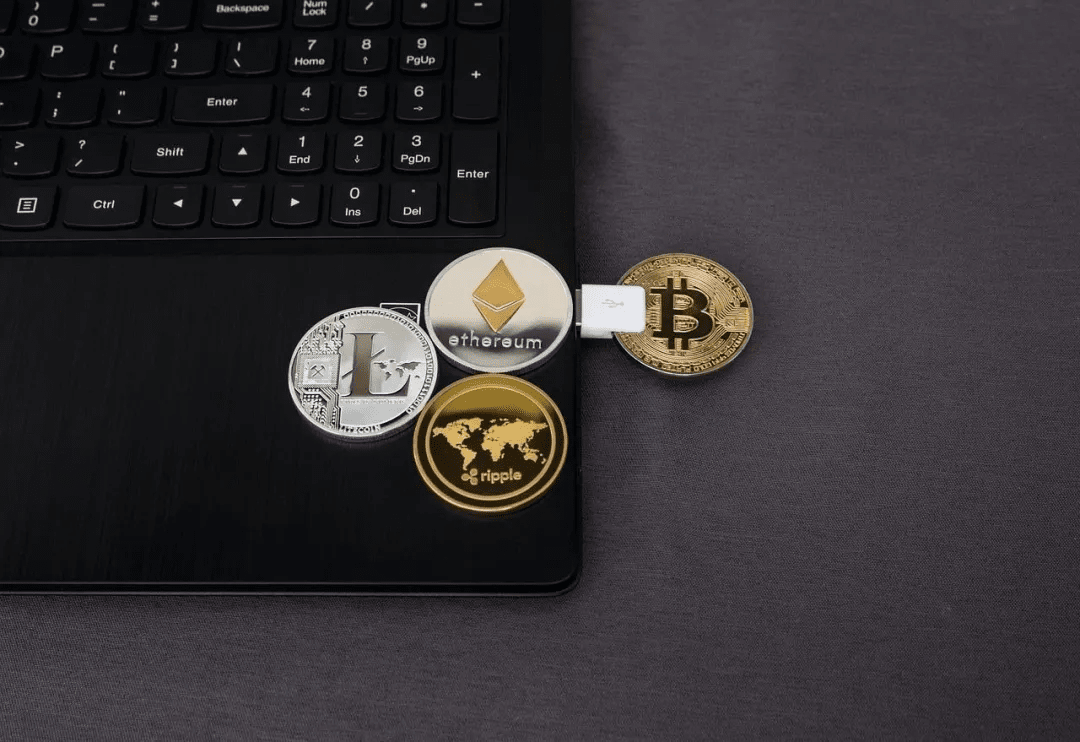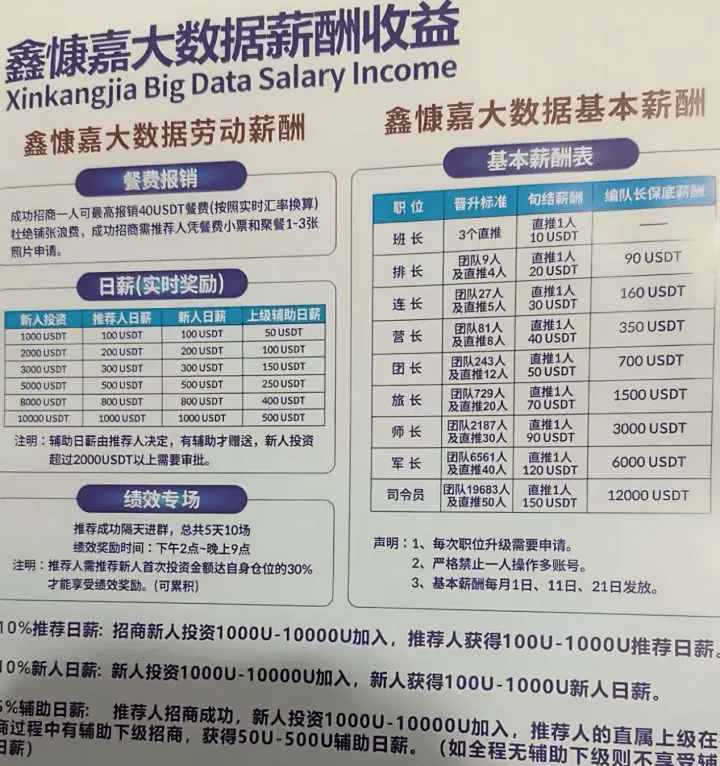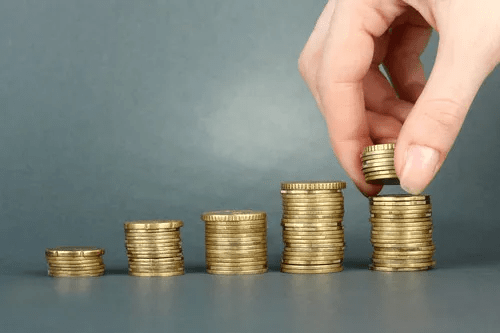Source of this article: New Frontier Finance
Text/Beijing Business Daily reporter Liao Meng
After warnings of risks were issued in many places, this fake investment and financial management platform under the name of virtual currency was "empty". On July 8, a Beijing Business Daily reporter noticed that recently, an investment and financial management platform named "DGCX Xinkangjia" (hereinafter referred to as "Xinkangjia") has caused heated discussions on public social platforms. It is said that a total of 2 million investors participated in this platform, and the amount involved was as high as 13 billion yuan. Pictures circulated on the Internet show that after the platform funds could not be withdrawn and redeemed, the company's founder Huang Xin made a high-profile statement in the member exchange group that he was already abroad.
From the perspective of business model, Xinkangjia used the name of an overseas licensed exchange and the banner of virtual currency investment to attract consumers with high returns, with a daily return rate of 1%. It also set high rewards to develop downlines and set a profit sharing ratio based on the number of downline members. Even after the platform could no longer pay, there were still users joining in. Behind this not-new scam, there are still many consumers who are willing to take risks and voluntarily participate in the "greater fool game."
The daily yield is 1%, and it will be "harvested" again after it cannot be redeemed.
"Xin Kangjia ran away and defrauded me of more than 8,300 U (virtual currency stablecoin 'USDT', one USDT is about RMB 7), equivalent to RMB 55,000. I have reported the case to the police and hope to recover it." Among the many personal short video accounts sharing daily life content, Wu Li (pseudonym), an investor from Hubei, recently released such a video.
After the aforementioned video related to Xinkangjia was released, it quickly became the most popular content on Wu Li's homepage. Judging from the public interactive content, the video attracted investors from different regions of the country who participated in the Xinkangjia platform transactions. The topics also focused on the specific investment amount and whether the losses could be recovered.
Zhang Yi (pseudonym) is still in shock about the collapse of Xinkangjia. In early May 2025, Zhang Yi went home to visit his parents on the weekend and unexpectedly discovered that his mother was participating in the so-called "buying and selling crude oil" through virtual currency, and the trading platform was Xinkangjia. Under the rhetoric of "many people around me are involved" and "everyone is making money", Zhang Yi, who was sure that this was a Ponzi scheme, realized that his mother had been deceived, and then quickly contacted the introducer and strongly demanded the return of the participation funds of 15,000 yuan.
Huang Zheng (pseudonym), an investor from Wuhan, told Beijing Business Daily that according to the publicity, investors can participate in overseas gold and crude oil investment through the platform, and get a daily return of 1% of the principal, but the invested funds cannot be withdrawn within one month. About four days ago, the platform App could no longer be logged in. Huang Zheng participated in it at the end of May 2025 and has not yet withdrawn the funds. The more than 30,000 yuan invested has been lost.

Based on the feedback from many investors, such a high rate of return is just the tip of the iceberg for Xinkangjia. By recommending new people, adding positions and other operations, Xinkangjia can recoup its investment in a short period of time. The "no-cost benefit" can quickly create dozens of times of profit.
Zhang Yi shared his experience of recovering funds for his mother on social media, sparking dissatisfaction among investors who support Xinkangjia. "For more than a month, there have always been investors who have been touting the returns and emphasizing how they have earned hundreds of thousands of yuan through Xinkangjia. But I always think it's a scam," Zhang Yi said.
The rhetoric that promoted Xinkangjia's high returns gradually disappeared after June 25. On that day, Xinkangjia was unable to withdraw cash, and the next day it was confirmed that the system was paralyzed. The platform responded that "the company was defined as tax evasion by the regulatory authorities, and the account funds were all frozen and could not be withdrawn." If users want to withdraw cash, they need to pay taxes according to 10% of the holding amount, and the funds are still transferred to the platform by recharging USDT. After paying taxes, a 1% return can be generated every day. After reaching 100 USDT in total, withdrawals can be made, and the withdrawal fee is 50%.
According to this idea, if an investor holds 1,000 USDT, he needs to "pay taxes" of 100 USDT, that is, inject funds again, and can obtain 10 USDT per day. After the cumulative amount reaches 100 USDT, the actual amount that can be withdrawn is 50 USDT.
On one hand, there is a high risk of platform collapse, and on the other hand, there is a large amount of money invested in the account. Although many people believe that the "tax payment" plan is the last "sickle" of the platform to harvest investors, they still can't help but be eager to try. Until the end of June, Huang Xin said in a group chat with some investors, "I am already abroad, because your wealth does not match your IQ, I want you to match it, I just took away your wealth that does not match your IQ", announcing the official suspension of Xinkangjia.
Police in many places warned of risks, and the operating company had already been deregistered
The turmoil caused by Xinkangjia’s inability to repay continued to ferment, and the so-called withdrawal after “paying taxes” also made investors doubtful. Many investors began to seek help from the police like Wu Li.
On July 7, the Public Security Bureau of Taojiang County, Hunan Province, issued a risk warning, pointing out that the bureau found in its daily work that some people invested through the "DGCX Xinkangjia" platform under the recommendation of others. The platform used the name of the Dubai Gold and Commodities Exchange (DGCX) to attract funds. Without obtaining authorization and relevant qualifications, it falsely claimed to be the Chinese branch of the DGCX exchange and promised high returns. The platform determined the level and profit sharing ratio based on the number of members developed. Starting from June 25, 2025, the principal of the "DGCX Xinkangjia" platform can no longer be withdrawn normally, and the withdrawal of profits is restricted by setting high "handling fees" and other conditions. This behavior is suspected of fundraising fraud.
In fact, since October 2024, regulatory authorities in Sichuan, Guangdong, Jiangxi, Hunan and other places have issued risk warnings to Xinkangjia, all pointing out that Xinkangjia carried out a Ponzi scheme through a pyramid scheme. In June 2025, the Hunan Provincial Party Committee Financial Office issued a warning that a platform and WeChat public account named "Xinkangjia" publicly promoted false overseas futures investment projects and promised high rebates, and carried out business through virtual currency transactions and a multi-level "recruiting people" profit-sharing model, which posed a great risk of illegal fundraising.
Beijing Business Daily reporter further investigated and found that developing downlines through "direct push rewards" and "team commissions" is the main way for Xinkangjia to attract investors. A reward plan obtained by Beijing Business Daily reporters shows that Xinkangjia divides the region according to the "four major war zones", develops members offline, and promotes through irregular gatherings and WeChat groups. The level and profit ratio are determined according to the number of team members, with a total of 9 levels. The highest level "Commander" can get 150 USDT rewards for directly pushing one person, and the lowest level "Squad Leader" can get 10 USDT rewards for directly pushing one person. There are also guaranteed rewards of different amounts for levels above "Squad Leader".

Image source: Xinkangjia Investors
The reward for attracting the team leader to develop downlines comes from the funds injected by the downline. According to Huang Zheng, the team leader he was in established the Xinkangjia new recruiting studio at the entrance of the community, attracting a large number of community residents, including himself, to participate, and most of them were middle-aged and elderly people over 50 or 60 years old. "The minimum capital threshold for our participation is 15,200 yuan, and the corresponding USDT actually entering the platform is about 14,700 yuan. The remaining nearly 500 yuan is the income of the team leader. In addition, the team leader has repeatedly reminded everyone to bring in new people, and each person who brings in a new person will be rewarded with 200 USDT." Huang Zheng said.
Huang Zheng pointed out that according to the platform's publicity, investors can participate in overseas gold and crude oil investment through the platform and receive a 1% return on their principal every day, but the invested funds cannot be withdrawn within a month. About four days ago, the platform App could no longer be logged in. Huang Zheng participated in it at the end of May 2025 and has not yet withdrawn the funds. The more than 30,000 yuan invested has been lost. Some people in Huang Zheng's team joined after the platform could no longer pay.
Tianyancha data shows that the operating entity of Xinkangjia, Guizhou Xinkangjia Big Data Service Co., Ltd., was established in April 2024. The company was listed in the abnormal operation list in August and October 2024 and June 25, 2025 because it was "unable to contact through the registered residence or business premises." In addition, on May 18, the company applied to the registration authority for cancellation of registration due to "resolution to dissolve." On July 8, Beijing Business Daily reporters called the company's disclosed contact number several times, but no one answered.
In the view of Yu Jianing, director of the Hong Kong Institute of Registered Digital Asset Analysts, this incident is a typical illegal fundraising and fraud. The core problem is that the platform attracts a large amount of funds by forging overseas compliance backgrounds, promising high returns, setting up a hierarchical reward mechanism, etc., and restricting withdrawals and closing channels after it cannot be continuously redeemed. In terms of law and industry recognition, it does not belong to a real digital asset exchange or platform, and there is no actual trading system with any technical support. Criminals embed traditional illegal fundraising structures into the circulation mechanism of stablecoins such as USDT, deposit funds in USDT, bypass the RMB regulatory channels, and then quickly flee abroad to evade the existing financial system's monitoring of large cross-border fund transfers.
Those who knowingly commit a crime must be held accountable. It is recommended to stay away from this kind of "greater fool game"
It is worth mentioning that Xinkangjia's fund-raising scams are not uncommon in the industry. Such platforms often set up virtual trading venues and develop offline members to carry out online investment activities including "spot", "futures", "gold", "oil", "foreign exchange", etc., and use virtual currency to transfer funds.
Hot events and emerging concepts are easily exploited by such platforms. In the past operations of Xinkangjia, it has also used the names of "digital RMB" and "stable currency" for publicity. Liu Honglin, founder and lawyer of Shanghai Mankiw Law Firm, bluntly stated that financial fraud in the name of virtual currency still has a huge audience base. No matter how the industry talks about technology and compliance, in reality, a large number of ordinary investors still have a vague understanding of the words "stable currency", "exchange" and "blockchain", and are easily misled by packaging and rhetoric.
On the other hand, Beijing Business Daily reporters noticed that after Xinkangjia was shut down, discussions about such events were mixed with a lot of discussions about "how to play the Ponzi scheme". Many users "showed off" that they knew Xinkangjia was a Ponzi scheme, but they entered the market early and withdrew in time, earning high returns. Some even posted new Ponzi scheme information in the comment section of related events, inviting new users to participate by pulling them offline.
This type of fund pool is often referred to as the "greater fool game" in the industry. Some participants know that it is highly risky, but they always believe that they will not be the last one to run. "These participants often have basic identification capabilities and can even see through the so-called investment model, which is nothing more than a game of borrowing new money to repay old money. This kind of thinking is a speculative behavior with misplaced risks, which bases individual behavior on the expectation of others' losses, but ignores the unpredictability of the market itself and the absolute dominance of the platform operators." Yu Jianing analyzed.

Liu Honglin said that Xinkangjia, under the banner of "virtual currency", "international platform" and "high-tech finance", is actually the most traditional Ponzi scheme. In this type of scam, there is a group of people who know that the platform is not compliant and may even be suspected of fraud, but still actively participate in "recruiting people" and "earning rebates", and it is very likely that they will change from "victims" to "accomplices".
Liu Honglin emphasized that according to judicial interpretation, even if one is not a "core member" of the organization, as long as one actively participates and reaches a certain scale, it may constitute a "joint crime", and even if one makes money, it may be illegal income with risks.
Su Xiaorui, a senior researcher at Suxi Zhiyan, believes that virtual currency itself is a high-risk area for speculation, fraud, etc. This type of scam takes advantage of the fact that consumers have little understanding of virtual currency and "rolls" away users' funds through virtual currency investment. Earlier, my country has explicitly banned cryptocurrency operations and speculation activities. Individual investors must be clear: such behavior is an illegal financial activity, deviates from regulatory requirements, and is extremely risky. Such investment and financial management activities should also be avoided.
Liu Honglin suggested that for ordinary investors, the standard for judging whether an investment platform is reliable is whether they can clearly know where the money went, what was done, who is supervising, and who is responsible if problems arise before investing. If these four questions cannot be answered, such platforms should not be touched. In daily life, for "investment opportunities" whose compliance is unclear, do not blindly believe in the so-called "early entry and early profit".
/ END.

